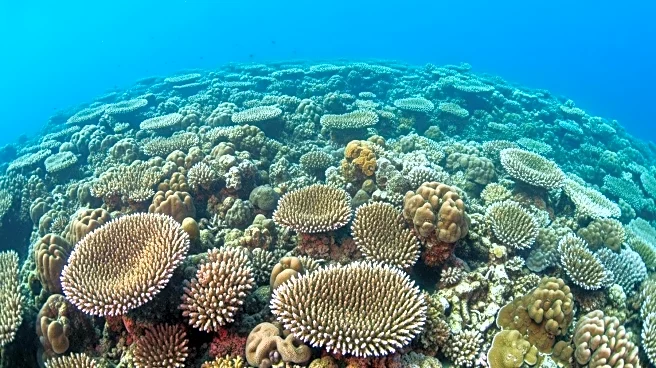What's Happening?
Recent research conducted by Ohio State University has highlighted the impact of rising ocean temperatures on coral species, particularly Stylophora pistillata from the northern Red Sea. The study examined the effects of sustained elevated temperatures over six months, revealing that while these corals can survive, they do not thrive under such conditions. Corals exposed to temperatures of 27.5 and 30 degrees Celsius showed significant reductions in size, with those in 30 degrees Celsius waters being 70% smaller than their control group. The findings suggest that even thermally tolerant coral species may struggle to adapt to the consequences of warming seas, potentially affecting reef diversity and marine life support.
Why It's Important?
The study underscores the broader implications of climate change on marine ecosystems, particularly coral reefs, which are vital for biodiversity, tourism, and fishing industries. As ocean temperatures continue to rise, the resilience of coral species like Stylophora pistillata becomes crucial for maintaining reef ecosystems. The potential decline in coral size and diversity could adversely affect communities reliant on reefs for economic activities. This research provides valuable insights for conservation efforts, emphasizing the need to protect resilient coral species and establish sanctuaries to ensure the survival of high-probability-success reefs.
What's Next?
Future research may focus on the resilience of similar coral species and explore the long-term effects of sustained warming on biological processes such as reproduction. Conservation strategies could prioritize areas with resilient corals, creating protected zones to foster ecosystem growth. Continued study is essential to understand the full impact of climate change on coral reefs and to develop effective conservation measures.
Beyond the Headlines
The study highlights the ethical and environmental responsibility to protect coral reefs, which are crucial for marine biodiversity and human livelihoods. Long-term shifts in coral growth patterns could lead to significant changes in marine ecosystems, necessitating proactive conservation and climate mitigation strategies.










